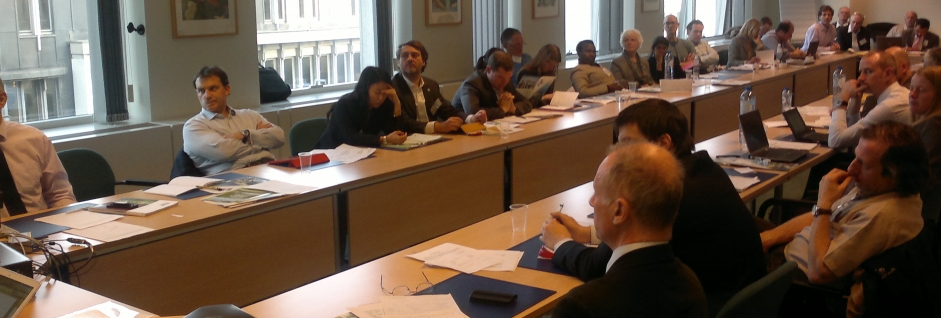
Brussels, 22-23 January 2014
The TEEB Office with support from UNEP World Conservation Monitoring Centre (WCMC) organized a scoping workshop attended by 50 international experts from amongst others the European Commission, charitable trusts, the Food and Agricultural Organization (FAO), the Consultative Group on International Agricultural Research (CGIAR) network, academia and non -governmental organizations.
The objective of the workshop was to develop the structure and define the content for a forthcoming study entitled ‘The Economics of Ecosystems and Biodiversity (TEEB) for Agriculture and Food (TEEB-AF)’ intended to provide a comprehensive economic evaluation of the eco-agri-food systems complex.
The study, planned to start in Spring 2014, aims to assess the social, environmental, economic, and health-related benefits and costs of agricultural production systems, so that governments and business can use the information and recommendations to improve economic and policy decision-making in the agricultural sector.
Pollination, erosion prevention or decomposition are examples of the benefits to agricultural production that are provided by biodiversity and ecosystem services. In contrast habitat encroachment, species reduction or soil erosion are some of the negative impacts of agricultural production on biodiversity and ecosystem services.
The study seeks to improve understanding of these benefits and costs, in the anticipation that this understanding will make it possible to assess the economic trade-offs between short-term productivity gains, longer-term ecosystem impacts and the effects on agricultural productivity in the long term.
The TEEB-AF study will build on ongoing initiatives and gather evidence necessary to identify policy options that can facilitate a transition towards more sustainable agricultural practices, with a particular emphasis on the role of small holder farmers. It is the next in a series of studies undertaken by the TEEB project since 2008 to draw attention to the benefits of ecosystems and biodiversity, the cost of degradation and the solutions for decision-makers to capture these values.
The TEEB-AF Study is expected to follow a structure similar to previous TEEB studies and include a series of reports: An Interim Report with new and compelling evidence, two core reports with a focus on (i) Scientific & Economic Foundations, and (ii) Policies, Production and Consumption and finally a Synthesis Report presenting the key overall messages from the study.
